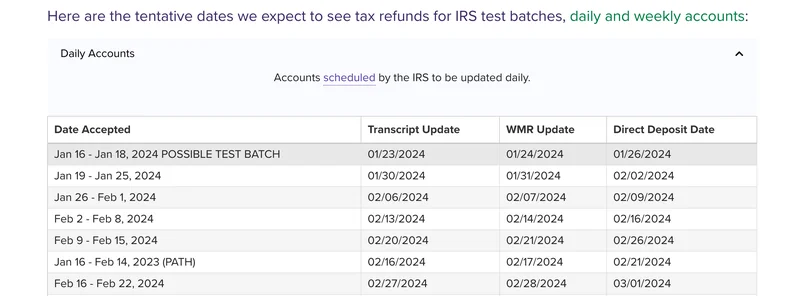Article Directory
Title: Stimulus Check 2025: Fact vs. Fiction in the Age of Misinformation
The internet’s buzzing again with rumors of stimulus checks. Direct deposits, tariff rebates, even "DOGE dividends"—the claims are flying faster than Dogecoin after a Musk tweet. But before you start planning that yacht purchase, let's ground ourselves in reality. As usual, the truth is buried somewhere between wishful thinking and outright scams.
Decoding the Stimulus Noise
First, let's address the elephant in the room: the supposed new federal stimulus checks. Claims of $1,390, $1,702, even a cool $2,000 hitting bank accounts this year? The IRS itself has thrown cold water on these claims, issuing warnings about scams and misinformation. They're not kidding. Remember that time a Nigerian prince promised me his fortune? (Okay, maybe not "me" personally, but you get the point.) These stimulus check rumors are about as credible. Are we getting stimulus checks in November? Updated, IRS tax refund status, rebate check
Senator Josh Hawley’s American Worker Rebate Act of 2025, proposing checks ranging from $600 to $2,400, is still just a proposal. It hasn’t moved through Congress. So, while Hawley’s intentions might be laudable, the legislative reality is…stuck. Think of it like that "revolutionary" new battery tech everyone's been promising for a decade. Lots of talk, zero action.
What about Trump's floated idea of "tariff rebates" or "DOGE dividends"? The concept was to return tariff revenue to taxpayers or use savings from a hypothetical "Department of Government Efficiency (DOGE)" inspired by Elon Musk's management of Twitter/X. The numbers thrown around were a $5,000 stimulus check in the form of a "DOGE dividend". Sounds great, right? Except, there’s been radio silence since February. No specifics, no details, just vague promises. This is the part of the report that I find genuinely puzzling. The lack of follow-up suggests this was more of a thought experiment than a concrete plan.
State-Level Relief: A Patchwork of Programs
While the federal stimulus landscape looks barren, some states are offering targeted relief. New Jersey’s ANCHOR program provides property tax relief to homeowners and renters, offering up to $1,750 for older homeowners. New York, Pennsylvania, Georgia, and Colorado have also rolled out "inflation relief checks" or "rebate checks" based on income, property ownership, or sales tax contributions.

But here's the catch: these programs are a patchwork. Eligibility criteria, payment amounts, and deadlines vary wildly. What works in New Jersey won't necessarily apply in New York. This fragmented approach creates confusion and makes it harder for people to access the help they need. It's like trying to navigate a foreign city with a map that's missing half the streets.
And speaking of confusion, let’s talk about the Recovery Rebate Credit. The deadline to claim the third stimulus check via the Recovery Rebate Credit was April 15, 2025. Missed it? Too bad. Any unclaimed stimulus payments revert to the U.S. Treasury. No extensions, no appeals. It's a harsh reality, but a deadline is a deadline.
The Refund Reality: Tracking Your Money
Okay, enough about hypothetical checks. What about the money you're actually owed? If you're waiting on a federal tax refund, the IRS's "Where's My Refund" tool is your best friend. Electronic filers with direct deposit can typically expect their refunds within 21 days of acceptance. Paper returns take longer—six to eight weeks. Most states also have online portals for tracking state income tax refunds. The Delaware Division of Taxation, for example, has its own portal.
But here's a methodological critique: the IRS's 21-day timeframe is an average. Some refunds may arrive sooner, others later. And if there are any discrepancies or errors on your return, expect delays. The system isn't perfect, and patience is key.
So, What's Really Going On?
The stimulus check frenzy is a symptom of a deeper problem: economic anxiety fueled by misinformation. People are desperate for relief, and scammers are exploiting that desperation. The lack of clear, consistent communication from government agencies only exacerbates the problem. Until we address these underlying issues, the stimulus check rumors will keep swirling, preying on the vulnerable.
